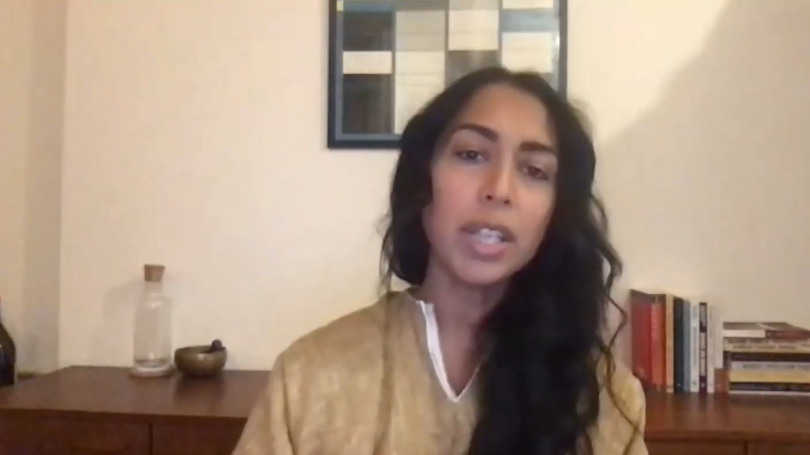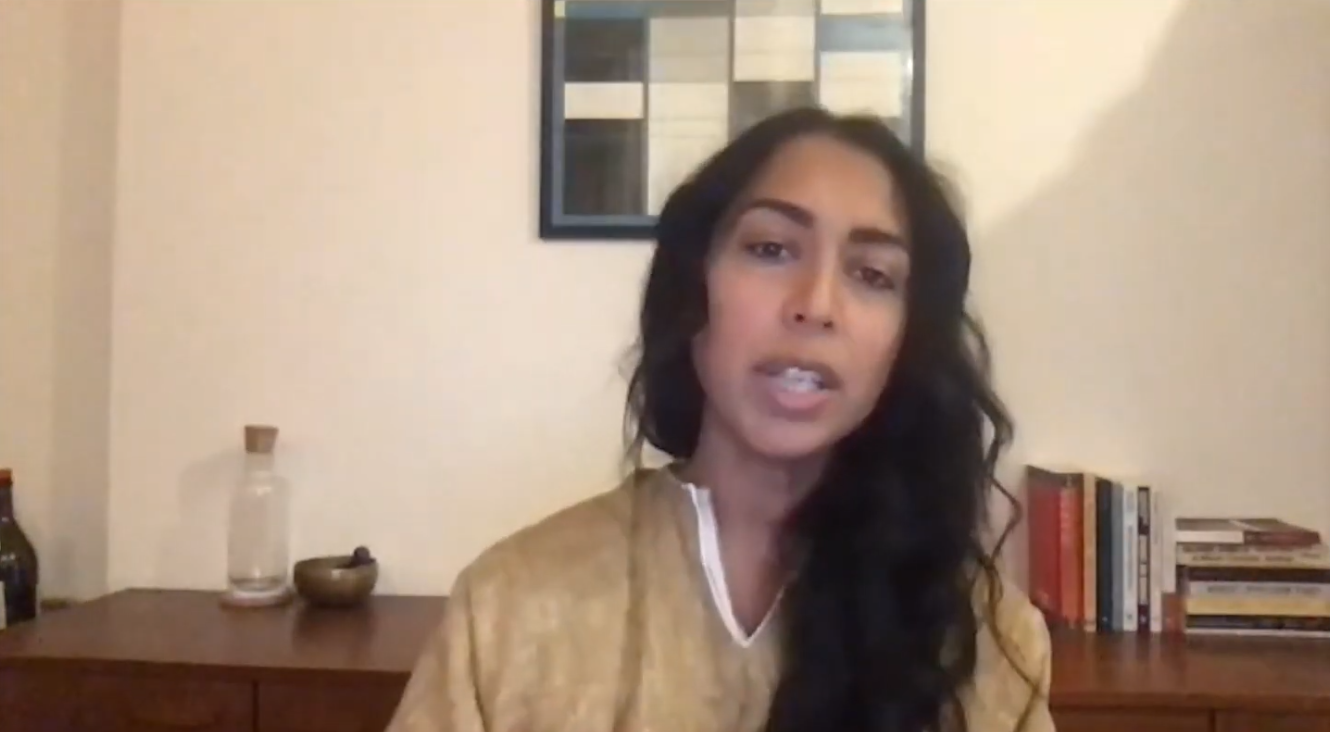


Video no longer available at the request of the speaker.
On February 4, 2021, Amia Srinivasan, the Chichele Professor of Social and Political Theory at All Souls College, Oxford, spoke at the Roger S. Aaron ‘64 Lecture titled “Sexual Politics After #MeToo”. A published author and prominent thought leader, Srinivasan offered her insights into the complexities of the #MeToo movement which was started by Tarana Burke in 2006 and brought to international attention in the autumn of 2017. Much of her presentation was derived from her upcoming book on epistemology.
Susan J. Brison, the Eunice and Julian Cohen Professor for the Study of Ethics and Human Values at Dartmouth College, facilitated the conversation that drew nearly 100 interested members of the Dartmouth community.
Srinivasan began her talk by breaking down the complexities of #MeToo, beginning with the issue of “rare” but “problematic” false rape allegations. She told the audience that despite the enormous cultural focus on false allegations, more men are actually raped than are accused of rape, highlighting a pervasive cultural dissonance. Despite their rarity, false allegations are steeped in racism and classism. “Black men serving time are 3.5 times more likely to be innocent” than their white male counterparts, Srinivasan explained. She went further to argue that white male pre-occupation with false rape allegations is based in part on their mostly positive experiences with the legal system in the U.S. and elsewhere.
The U.S. legal system, in particular, is vulnerable to the racist trope that black men are “animalistic” and black women are “promiscuous”. Accountability for sexual assault, she argues, is typically reliant on a legal system marked by racism and classism, making true justice nearly impossible. Moreover, issues of religion and immigration status, although rarely discussed, make reporting sexual crimes difficult, if not impossible, for many women. Srinivasan points out all of this to complicate the popularized #BelieveAllWomen narrative and to analyze how intersectionality makes finding justice in an often unjust legal system nearly impossible for many survivors of sexual assault. “If we want to end sexual harassment, we have to ask if engaging a carceral system that is unfair is the answer.”
Srinivasan went on to discuss the “sex bureaucracies” that exist on college campuses. She argues that Title IX offices and other such policies instituted and executed by American universities are designed to protect the universities themselves not the students they claim to serve. Susan Brison asked Ms. Srinivasan if employing civil rights laws, such as Title VII, could be a solution.
As she does with all of her work, Srinivasan concluded her talk by adding necessary nuance to issues of gendered sexual expectations and affirmative consent laws. She concluded by saying, “Feminism must ask women to be better, more imaginative…” if we are to solve these complicated issues of sexual harassment and assault without creating and engaging harmful and oppressive systems in the process.
Written by Blake McGill ’22, Rockefeller Center Student Assistant for Public Programs